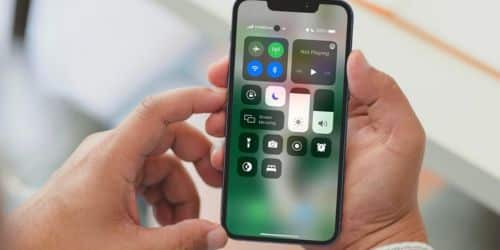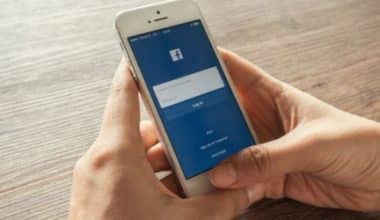You’re texting someone and they respond with “DND.” Okay…What does DND in texting mean? And what are you going to say? Fortunately, “DND” is a frequent expression with the same meaning in most contexts. In this post, we’ll teach you everything you need to know about this three-letter word, as well as how to react with ease. Let’s get into further detail!
What Does “DND” Mean?
DND, an abbreviation for “Do Not Disturb,” is a word commonly used in many communication and texting platforms to convey that someone does not want to be bothered or interrupted. This abbreviation is commonly used in digital communication and numerous applications to indicate that a person is unavailable or busy. For example, a friend may send a text message saying, “I’m sorry, I can’t keep chatting or texting right now, I have DND on.”
DND mode normally silences all notifications, calls, and alerts when used on smartphones or other devices. This allows a person to work, sleep, or enjoy a peaceful time without interruption. In some cases, DND can be configured to accept specific notifications or calls from specific contacts.
Aside from digital communication, some people utilize physical “Do Not Disturb” signs, particularly when staying in hotels or attending crucial meetings. These signs assist in informing others that the tenant needs seclusion or is now unavailable.
It’s also worth mentioning that DND is occasionally used as an abbreviation for “Do Not Delete.” This usage, however, is less frequent than the “Do Not Disturb” connotation.
Remember to honor someone’s request if they mention DND or display a “Do Not Disturb” sign. It demonstrates respect for their time and limits, allowing them to concentrate on whatever they are doing without interruption. So, the next time you see DND in a message or on a sign, remember that it stands for “Do Not Disturb” and offer the person the solitude and space they require.
The origin of the term “DND”
DND, which stands for “Do Not Disturb,” originated in the area of telecommunications. Originally, it was a feature available on most Private Branch Exchange (PBX) or Private Automatic Branch Exchange (PABX) systems that allowed users to block incoming calls from ringing on their extensions. This service was essential in situations where uninterrupted work or seclusion was required.
DND’s application grew outside telephone systems over time. It crept into a variety of digital gadgets and apps, eventually becoming a regular feature in current communication tools. The major goal of the DND feature is to provide users control over their communication channels, allowing them to temporarily quiet notifications or calls and create a distraction-free atmosphere.
DND capabilities frequently provide extra choices, such as routing calls to a pre-assigned extension, such as a secretary or assistant, or generating a busy signal or a recorded message to notify callers of the user’s absence. These settings provide more customization and ensure that the user can successfully control their interactions.
DND has become an important part of digital communication in today’s fast-paced society. The ability to temporarily silence and avoid distractions has grown more vital than ever, from instant chat tools like Skype and Discord to cell phones and email clients. To put it mildly, DND has gone a long way since its humble origins in the telecommunications business, and it continues to improve, making our lives a little easier.
What Does DND in Texting Mean?
“DND” stands for “Do Not Disturb” in texting and online communication. DND is commonly used in texting to signal that the individual is now unavailable or does not wish to be disturbed, either because they are busy, sleeping, or simply want some alone time. Many electronic devices have a DND mode that can be activated to temporarily silence notifications and alerts.
Meaning of DND in Technology
DND is a function in the technology sector that allows consumers to mute or disable notifications on their devices. Most current smartphones, tablets, and PCs have this capability, which is normally accessed through the device settings or the notification panel.
When you enable the DND feature, the device stops playing notification sounds, vibrating, and lighting up the screen. Notifications are often saved in a different section or hushed until the feature is disabled.
Many people use the DND feature at specified times of day or night, such as while sleeping, working, or driving. This capability is also beneficial during meetings, classes, and other circumstances where interruptions are not permitted.
DND Meaning in Hospitality
DND is a sign or indicator used by guests to request privacy or deny housekeeping services in the hospitality business. The sign is typically displayed on the doorknob or outside the room, and it is frequently given by the hotel or resort.
The housekeeping personnel will not enter the room if the DND sign is displayed unless there is an emergency or the visitor requests service. This enables guests to sleep in, work, or rest uninterrupted.
Many hotels now have a “makeup room” option, which allows visitors to schedule housekeeping service at a time that is convenient for them. This is normally accessible via the hotel’s mobile app or by contacting the front desk.
DND Meaning in Customer Service
DND is a status or preference that customers can specify on their accounts or profiles in customer service. The status indicates that the consumer does not wish to be contacted by the company or its agents via phone, email, or postal mail.
Customers may choose to activate the DND status for a variety of reasons, including excessive commercial messages, abuse or spam, or simply choosing to take a break from communications.
To comply with privacy laws and regulations, many businesses have developed DND policies or opt-out methods. The Telephone Consumer Protection Act (TCPA), for example, mandates telemarketers to honor customers’ requests to be placed on the Do Not Call (DNC) list.
How to Use “DND”
You can put your DND capability to use in a variety of ways. Let’s go over some common scenarios in which the DND capability may be useful:
#1. Text your loved ones that you have an important event coming up.
Do you have a meeting, interview, or exam coming up? Inform your friends and family of your future plans, then use “DND” to request privacy during that period.
- “Exam is in 5 minutes, DND.”
- “DND, I’m just about to walk in for my interview.”
- “I have an important presentation in an hour, so DND.” I’ll let you know when I’m available.”
- “I’m about to walk into a meeting, so I’m turning my phone to DND.” Please do not text me until 8 p.m.”
#2. Let everyone know your phone is in “Do Not Disturb” mode.
Set up an auto-reply message if you’re in DND mode to notify others that you’re unavailable. On iPhones, go to your general settings and enable this feature: Select “Do Not Disturb,” then “Auto Reply,” and then compose your message. Install the SMS Auto Reply software on your Android or Samsung device to program your reaction to any incoming texts.
- “I’m in DND mode right now, so I won’t see your message until the morning.” “Good night.”
- “Hey, I’m on Do Not Disturb mode while driving. I’ll get to your message as soon as I arrive.”
- “I’m on vacation in Hawaii right now, and my phone is set to Do Not Disturb.” I’ll return to the office on March 31.”
#3. Caption your vacation post with “DND” (and some fun emojis).
Whether you’re on a tropical island or in the countryside, caption your holiday pics with “DND” to show the world you’re having the time of your life. Feel free to include some fun emoticons to portray additional personality and humor.
- “DND”
- “It’s time to rest and relax. DND.”
- “The mountains call to me… DND”
How to Respond to “DND”
How do you react when you receive a DND notification from a friend or family member? Is it even necessary to answer when it already says “do not disturb”? That is a hard topic, but let’s have a look at some possible responses. They are as follows:
#1. Reply with “Okay” to let them know you received their message.
While you are not required to answer “DND,” you can send a quick message to confirm that you heard from the other person. It’s more polite than responding with a Tapback (or leaving them on read), and it brings the dialogue to a happy conclusion.
- “Okay, I’ll see you soon!”
- “Okie dokie”
- “OK, I’ll talk to you later.”
- “Oh, gotcha.”
#2. Wish them luck if they have an upcoming event.
Send a helpful note to a loved one who has an impending meeting, exam, or interview to improve their confidence. You can send them a simple “Good luck” message or request that they start texting you when they are accessible and off DND.
- “Good luck, you’ve got this!”
- “Break a leg!”
- “You’re going to absolutely crush your presentation!”
- “Whatever happens, I’m so proud of you!” Please let me know how it goes!!”
#3. Respond to their social media post with a positive message.
If a friend posts a photo with the title “DND,” leave an encouraging message to show your support. You can commend the landscape, say how much you miss them, or be a little envious.
- “Look at how you’re living your best life!”
- “Come home soon, I miss you.”
- “Omggg”
- “So jealous of that view!”
- “I wish I could be there with you.”
How to Enable Do Not Disturb (DND) on Your Smartphone
If you’re unfamiliar with your smartphone’s DND capability, here’s how to utilize it:
On Android devices:
- Swipe down from the top of the screen to access the notification panel.
- To enable or deactivate the feature, tap the DND icon.
- Go to Settings > Sound & Vibration> Do Not Disturb to change the DND settings.
On iPhone devices:
- Swipe up from the bottom of the screen to access the Control Center.
- To activate or deactivate the feature, tap the moon icon.
- Go to Settings > Do Not Disturb to change the DND settings.
Benefits of Using DND on Your Smartphone
There are various advantages to using the DND feature on your smartphone or other devices, including:
- Reduced distraction and interruption: By muting notifications and phone calls, you may concentrate on your tasks without being distracted by your device.
- Better sleep: By minimizing exposure to blue light and noise, activating the DND feature during sleep time can improve the quality and quantity of your sleep.
- Improved productivity: By scheduling the DND feature at specified times, you can establish a pattern and avoid procrastination or distraction.
- Enhanced privacy: You can avoid unsolicited correspondence or spam by using the DND feature or setting up a DND status with firms.
- Increased safety: By using the DND feature while driving, you can avoid distractions while also adhering to traffic laws and regulations.
Does Do Not Disturb Block Calls?
No, Do Not Disturb (DND) does not completely stop calls. DND mutes incoming calls, notifications, and alerts, so your phone does not ring or vibrate. Calls are not, however, restricted, and callers can still leave voicemails or send messages.
How Can I Change Do Not Disturb Settings?
On an iPhone, go to the Settings app, select “Do Not Disturb,” and then adjust your preferences (schedule, contacts, message filtering, and so on).
On Android, open the Settings app, pick “Sound & notification” or “Sound”, depending on your device, and then “Do not disturb.” Change your settings for priority interruptions, automatic rules, and message/call filtering.
How to Turn Off Do Not Disturb on iPhone?
Toggle the toggle switch to turn off “Do Not Disturb” in the Settings app. To deactivate DND, open the Control Center by swiping down from the top-right corner (or up from the bottom for older models) and tapping on the crescent moon icon.
How to Turn Off Do Not Disturb on Android?
To reach the Notification Panel, swipe down from the top of the screen. To deactivate DND, look for the DND icon (a crescent moon) and tap on it. Alternatively, open the Settings app, pick “Sound & notification” or “Sound”, select “Do not disturb”, and toggle the switch to turn it off.
What Occurs When a Call Comes During Do Not Disturb Mode?
If you are in Do Not Disturb mode, your phone will not ring or vibrate. The caller will hear the regular ring, but the call will be sent to voicemail or redirected based on your preferences. The call, as well as any other notifications, will appear on the screen without interfering with the user’s experience.
Conclusion
Finally, DND is an abbreviation for “Do Not Disturb.” It’s a phrase used in a variety of professions, including technology, hospitality, and customer service, to express a desire for seclusion or quiet time. This article has covered everything you need to know about the DND feature and how to use it or reply to it, whether by texting or otherwise.
Related Articles
- How to Get a New Debit Card After Loss or Damage
- Serial Entrepreneur: Meaning & How To Become One
- Best Gel Nail Polish Brands: Comprehensive List Of The Best Brands
- STANDARD MAIL: How Long Does Standard Mail Take
- Interview Confirmation Email: How To Write One (+Templates)






